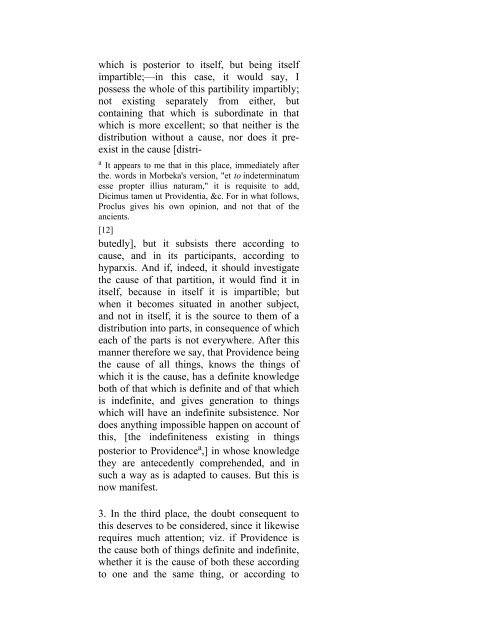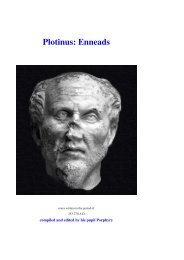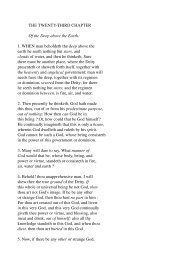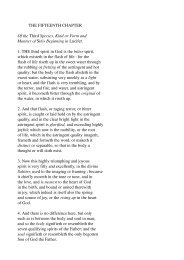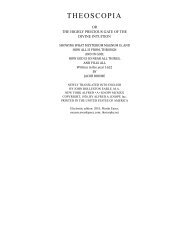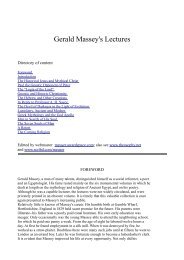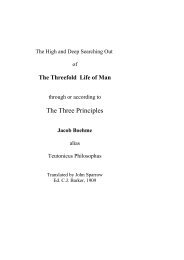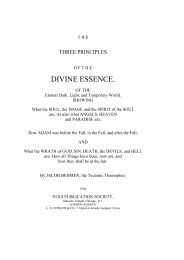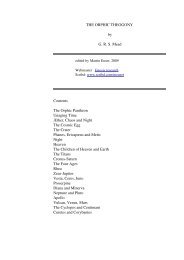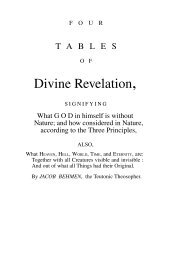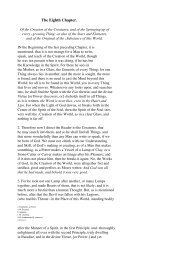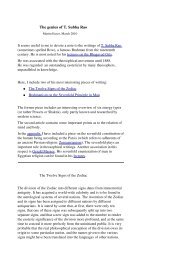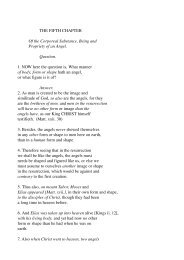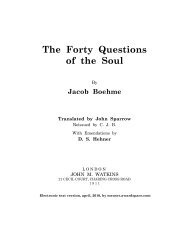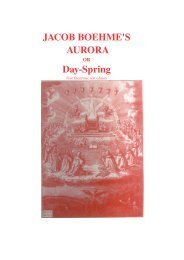PROCLUS, THE PLATONIC SUCCESSOR
PROCLUS, THE PLATONIC SUCCESSOR
PROCLUS, THE PLATONIC SUCCESSOR
You also want an ePaper? Increase the reach of your titles
YUMPU automatically turns print PDFs into web optimized ePapers that Google loves.
which is posterior to itself, but being itself<br />
impartible;—in this case, it would say, I<br />
possess the whole of this partibility impartibly;<br />
not existing separately from either, but<br />
containing that which is subordinate in that<br />
which is more excellent; so that neither is the<br />
distribution without a cause, nor does it preexist<br />
in the cause [distri-<br />
a It appears to me that in this place, immediately after<br />
the. words in Morbeka's version, "et to indeterminatum<br />
esse propter illius naturam," it is requisite to add,<br />
Dicimus tamen ut Providentia, &c. For in what follows,<br />
Proclus gives his own opinion, and not that of the<br />
ancients.<br />
[12]<br />
butedly], but it subsists there according to<br />
cause, and in its participants, according to<br />
hyparxis. And if, indeed, it should investigate<br />
the cause of that partition, it would find it in<br />
itself, because in itself it is impartible; but<br />
when it becomes situated in another subject,<br />
and not in itself, it is the source to them of a<br />
distribution into parts, in consequence of which<br />
each of the parts is not everywhere. After this<br />
manner therefore we say, that Providence being<br />
the cause of all things, knows the things of<br />
which it is the cause, has a definite knowledge<br />
both of that which is definite and of that which<br />
is indefinite, and gives generation to things<br />
which will have an indefinite subsistence. Nor<br />
does anything impossible happen on account of<br />
this, [the indefiniteness existing in things<br />
posterior to Providence a ,] in whose knowledge<br />
they are antecedently comprehended, and in<br />
such a way as is adapted to causes. But this is<br />
now manifest.<br />
3. In the third place, the doubt consequent to<br />
this deserves to be considered, since it likewise<br />
requires much attention; viz. if Providence is<br />
the cause both of things definite and indefinite,<br />
whether it is the cause of both these according<br />
to one and the same thing, or according to


